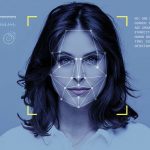Clearview, the controversial facial-recognition AI startup that uses social media photos to build a biometric database, seeks its first big deals with federal agencies

Late last year, we wrote about Clearview after the controversial facial recognition AI startup raised $30 million in Series B funding from undisclosed institutional investors. Clearview first made headlines in January 2020 after The New York Times ran a story titled: “The Secretive Company That Might End Privacy as We Know It.”
According to the report, more than 600 law enforcement agencies, including the FBI, are already using this facial recognition technology, despite bans on the technology in cities like San Francisco. Now, Clearview’s search engine of faces has become an indispensable tool for police around the country. Police say Clearview’s search engine helps them find people outside those datasets. But the company has an even bigger ambition.
This year, Clearview is aiming to win its first big U.S. government contracts and expand its team by a third amid a series of legal challenges to Clearview for its alleged violation of various states’ biometric information and data privacy laws.
The company founder and CEO Hoan Ton-That told Reuters in an exclusive interview. Ton-That said that he will focus on closing deals with federal agencies. He added that many of the company’s 3,100 customers are on a trial basis.
As part of its plan to boost its customer base and go after big customers, Clearview said it plans to add enhancement tools to clean up search photos and “potentially AI to generate younger and older depictions so that someday seniors could be matched to childhood photos.”
The 5-year-old Clearview uses AI to automatically scrape and collect publicly billions of photos of faces across social media and other websites to build out its biometric database. Clearview later sells access to the database using a proprietary search engine to law enforcement agencies and private companies.
Over the last two years, Clearview has become one of the highest-profile developers of facial recognition because it sends authorities matches from an ever-growing database of over 10 billion photos that it finds posted publicly on the internet.
Last August, a government audit found that Clearview facial recognition tool is used by a dozen of US federal agencies including The Federal Bureau of Investigation (FBI), Immigration and Customs Enforcement, and Fish and Wildlife Service. The startup also won about $50,000 to research augmented reality glasses with facial recognition to secure Air Force base checkpoints.
“Clearview AI has a pattern of deception: the company has been publicly defending its mass surveillance by claiming it will only sell to law enforcement while privately pitching an expansion into finance, retail, and entertainment,” said Jack Poulson, executive director of tech accountability group Tech Inquiry.
Speaking at The All Things Digital Conference in 2011, former Google Chairman Eric Schmidt said Google decided not to implement facial recognition technology because of privacy concerns. He said he thought it’s something that can be used in a “very bad way as well as a very good way.”
In 2021, Clearview was hit with legal complaints about its controversial face scraping in Europe after EU privacy watchdogs announced the company’s image-scraping methods violate European laws. Privacy International (PI) and several other European privacy and digital rights organizations filed legal complaints in France, Austria, Greece, Italy, and the United Kingdom saying that the images of faces the company automatically extracts from public websites — violate European privacy laws. But the privacy complaints did little to stop investors from pouring more money into the company.
Founded in 2017 by Hoan Ton-That, an Australian techie and onetime model, Clearview is a new research tool used by law enforcement agencies to identify perpetrators and victims of crimes. Clearview AI’s technology has helped law enforcement track down hundreds of at-large criminals, including pedophiles, terrorists, and sex traffickers. It is also used to help exonerate the innocent and identify the victims of crimes including child sex abuse and financial fraud. With Clearview AI, law enforcement is able to catch the most dangerous criminals, solve the toughest cold cases and make communities safer, especially the most vulnerable among us.


